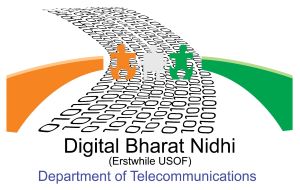Under this scheme, as of 31st January 2015, a total of 6,56,345 broadband connections have been provided and 15,671 kiosks have been set up in rural and remote areas.
The Rural Wireline Broadband Scheme was launched to provide broadband connectivity to rural & remote areas, at a speed of atleast 512 kbps, with a capacity to deliver data, voice and video services in a fixed mode. The scheme envisages providing wire-line broadband connectivity to institutional users, such as Gram Panchayats, Higher Secondary Schools and Public Health Centres, as well as individual users, located in the villages, by leveraging the existing rural exchanges infrastructure and copper wire-line network. This scheme is being implemented at a pan-India level. The objective is to make the rural and remote areas broadband enabled by facilitating the service providers in creating broadband.
Universal Service Obligation (USO) Fund signed an agreement with BSNL on 20.01.2009, with a validity period of nine years. Under this scheme, BSNL was supposed to provide 888,832 wire-line broadband connections to individual users and government institutions and set up 28,672 kiosks over a period of six years, i.e., by 2015 (extended by one year from the original target of January 2014).
The subsidy disbursement was provided for (i) broadband connections, Customer Premises Equipment (CPE), computer/computing devices (ii) setting up of kiosks for public access to broadband services. The estimated subsidy outflow under the scheme was Rs 1500 crore.








